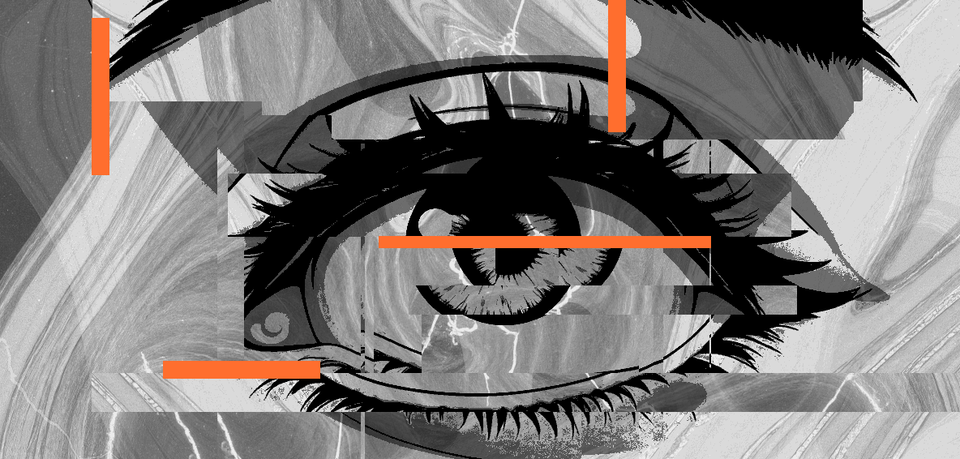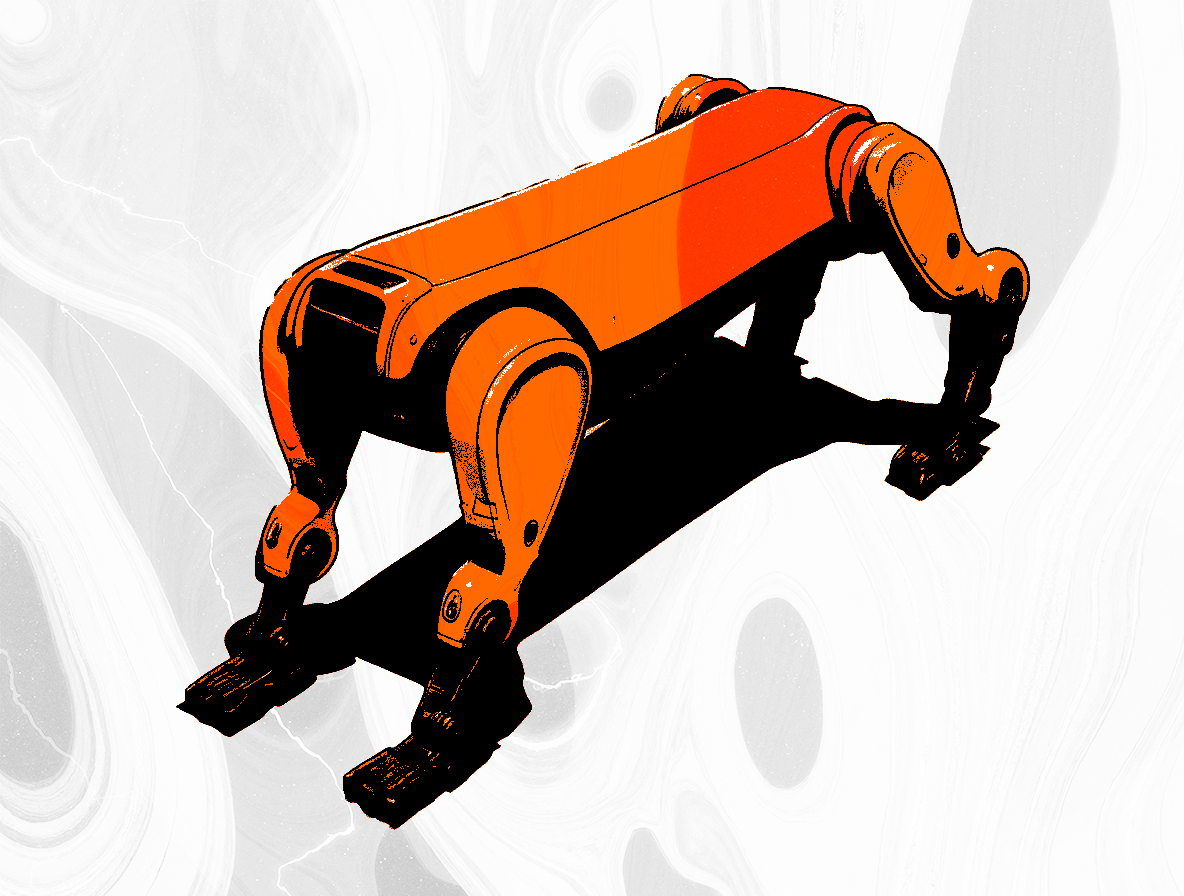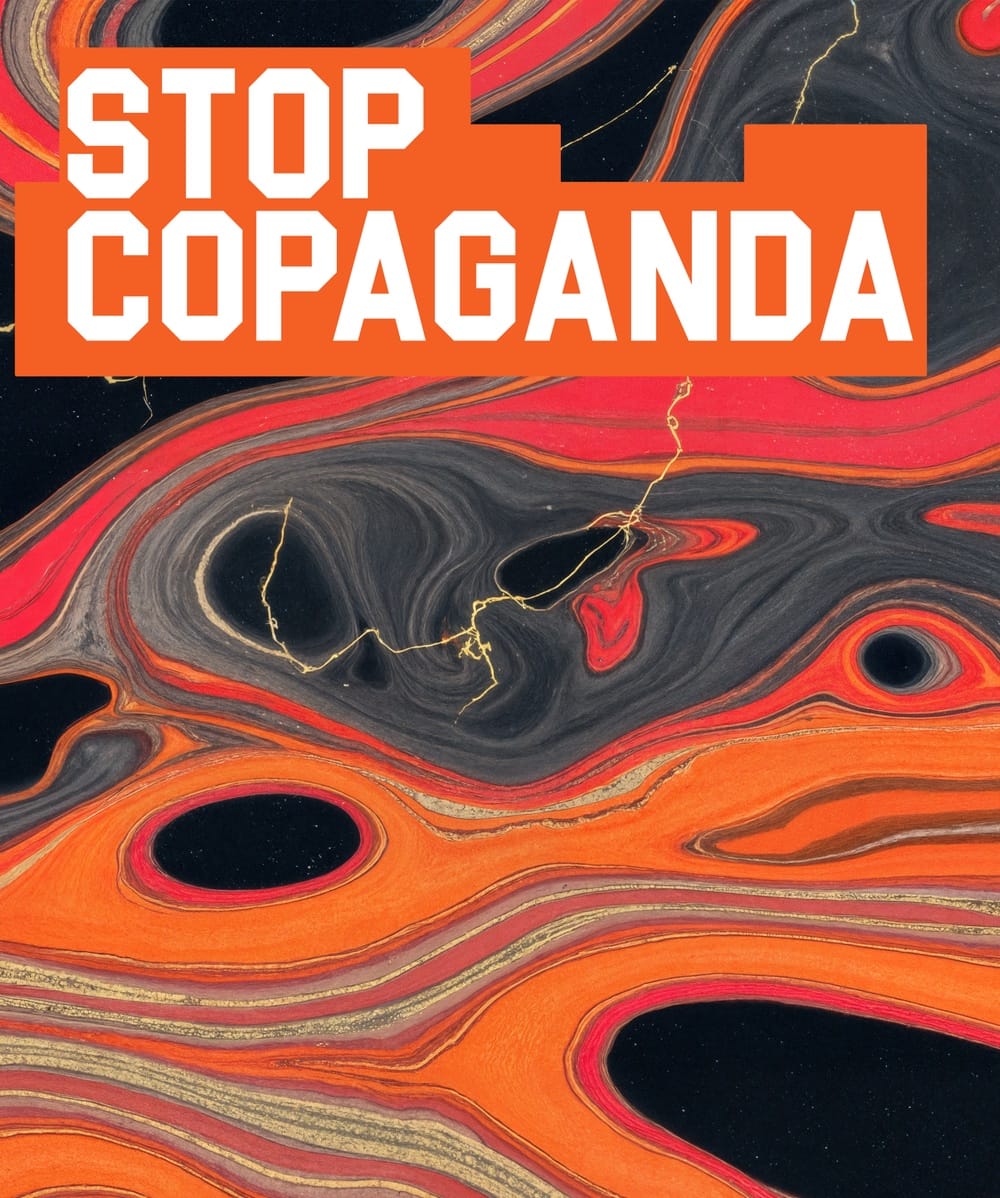Why it matters to tell stories against surveillance

Authors taking down authoritarian tech
This summer, we quietly released something totally new for us. It’s not a campaign, an open letter, or a digital tool—instead, it’s a special issue of a magazine containing five original works from a cohort of wildly exciting speculative fiction authors.
We worked with the digital magazine COMPOST to produce the issue, which we’re calling Stop Surveillance Copaganda. Each of five stories contends with surveillance, policing, and cultures of resistance, and each is accompanied by artist and activist commentary. Particularly exciting is the hosting scheme: COMPOST uses the Distributed Press API, making it a proof-of-concept for publishing on a resilient, decentralized, and censorship-resistant web. It is also available on Filecoin.
The stories are incredible (jump to them HERE). The settings range from a scorching Italian freeway, where swirling photovoltaic car windows catch the reflection of a Signora’s malocchio amulet, to a low-tech enclave within an automated city that’s exploited as a last source of genuine human intelligence. Each piece asks us to question the power and the inevitability of surveillant control, but we’re left with more than just questions: the stories’ protagonists present a kaleidoscope of tactics to resist technofascist authority.



Images by Vasjen Katro
Science fiction has always had an anti-authoritarian tinge, but it takes more than l33t hacker characters to make fiction that inspires (an instructive example is Dennis Coupland, famed chronicler of Gen X cultural subversion, who can now be found reposting overpopulation agitprop and describing Elon Musk as an “Übermensch.”) Our vision for Stop Copaganda was to present works that not only tell stories of resistance, but which develop a broader cultural front against surveillance copaganda.
What is surveillance copaganda? Speculative fiction author and Fight for the Future campaign director Lia Holland defines it as “narratives that uncritically regurgitate talking points from the multibillion dollar industry intent on destroying the human right to privacy for profit.”
Unfortunately, journalists, film directors, and even artists and writers often promote the idea that surveillance makes us safe. Sometimes the spin is on purpose, but more often it bubbles up from an unconscious and uncontested belief in the essential correctness of police use of “advanced” technologies like facial recognition, voice recognition, and biometric monitoring. Surveillance copaganda may valorize or fear Silicon Valley’s policing tech, but it always treats it as inevitable, perpetual, and omnipotent.
That stories are essential to the continued existence of surveillance-based policing is made brutally obvious by exactly how much police departments, surveillance purveyors, and SaaSers depend on a good yarn to keep the whole thing going. In an era of unabashed vibes-based capitalism, stories keep valuation afloat just long enough to hop to the next thing. Fiction that doesn’t take surveillance companies at their word shakes the entire foundation.
adrienne maree brown, activist and the co-editor of a compilation of social justice-oriented science fiction, has said that “all organizing is science fiction” because it demands a deep and abiding faith in a world that does not yet exist—and may not exist during our lifetimes. Some of what’s presented in the stories is completely imaginable: in an Italian eco-fascist state, a nonna pleads with bureaucratic enforcers that she correctly accounted for her carbon credits. Some push us farther into the hypothetical: we travel among rows of high-rises where a forced procreation program supports a population that rarely tastes outside air.
No matter the setting, the Stop Copaganda authors reinject agency into a genre that, at its worst, produces paralyzing dystopia porn: a “literature… of political desperation.” Explore the digital issue, and reemerge feeling something like hope.

Recommendations from Stop Copaganda authors
Christopher Muscato, author of A Charm to Keep the Evil Eye Away from Your Campervan; Or, Roamin’ Rights: Taras Grescoe's The Lost Supper: Searching for the Future of Food in the Flavors of the Past
A mouthwatering history of our relationship with nature, the role of the industrial food complex in reducing our access to food diversity, and the need for greater food sovereignty to help our health, social stability, and climate. Good for those who liked The Dawn of Everything, fans of Solarpunk (especially if it’s about food), and anyone with an appetite for better food systems/new recipes.
Cecilia Ananías Soto, author of Curlews: Elena Aldunate's Juana y la Cibernetica
This is a pioneering story of Chilean science fiction and cyberfeminism. It was written in 1963, in the middle of the industrial era, and explores the intersection between technology and sexuality. It has a bilingual version in English and Spanish, for those who want to read it.
Readout
- A tongue-in-cheek folk song about work as a data engineer. "Ho boys, can't you code it?" Stan Rogers, The White Collar Holler.
- Suggested alongside cultural history of the punch card, written by Steven Lubar in 1987. "Punch cards became not only a symbol for the computer, but a symbol of alienation... The cards came to represent a society where it seemed that machines had become more important than people, where people had to change their ways to suit the machines."
- Cory Doctorow on why Wikipedia works.

Member discussion